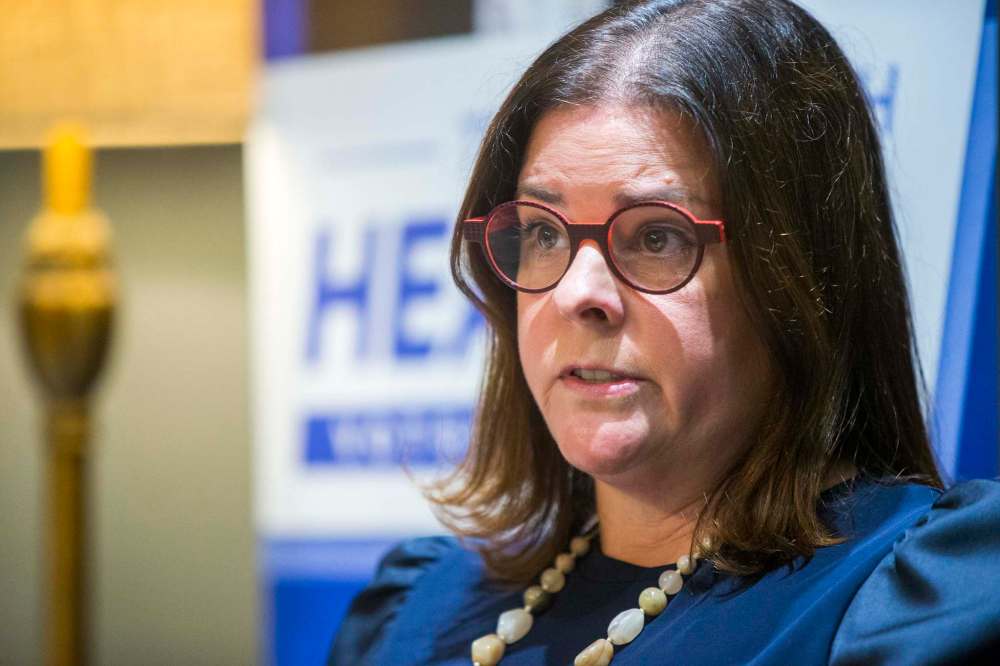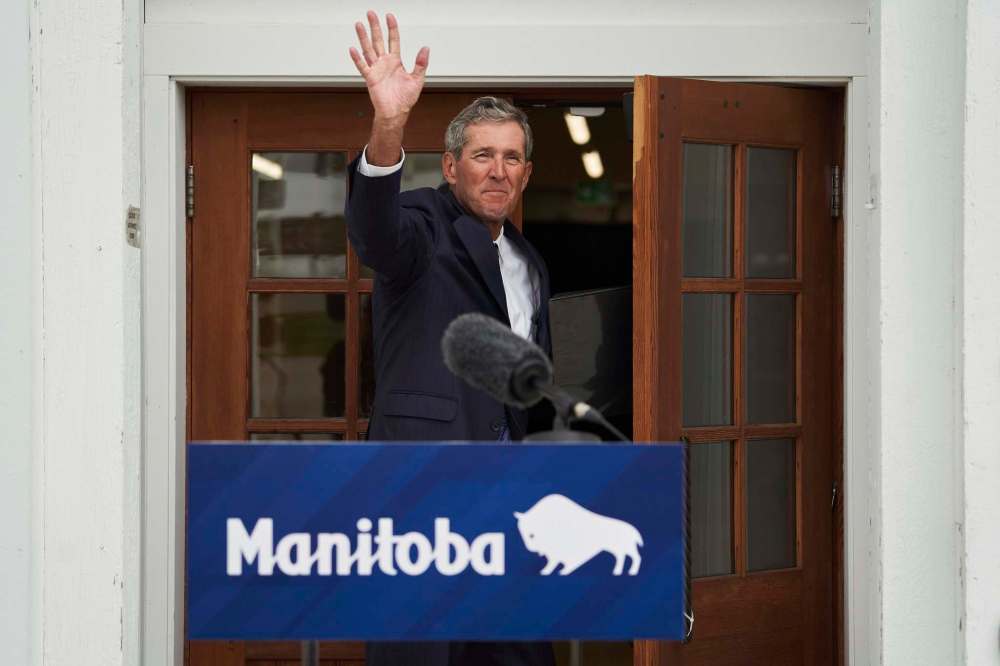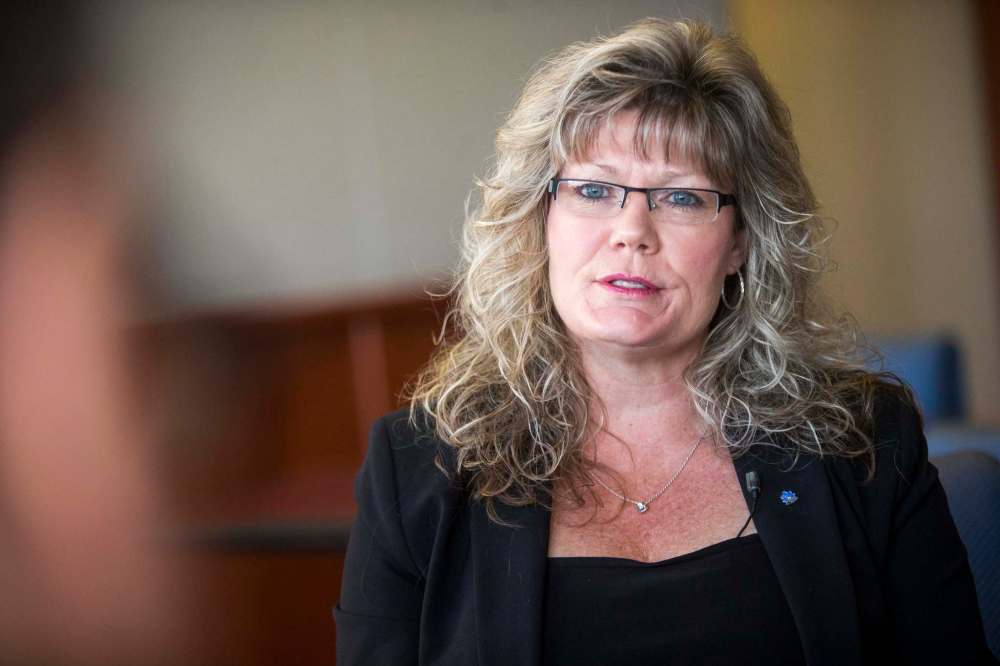Education property tax cut hinges on Tory leadership result
Read this article for free:
or
Already have an account? Log in here »
To continue reading, please subscribe:
Monthly Digital Subscription
$0 for the first 4 weeks*
- Enjoy unlimited reading on winnipegfreepress.com
- Read the E-Edition, our digital replica newspaper
- Access News Break, our award-winning app
- Play interactive puzzles
*No charge for 4 weeks then price increases to the regular rate of $19.00 plus GST every four weeks. Offer available to new and qualified returning subscribers only. Cancel any time.
Monthly Digital Subscription
$4.75/week*
- Enjoy unlimited reading on winnipegfreepress.com
- Read the E-Edition, our digital replica newspaper
- Access News Break, our award-winning app
- Play interactive puzzles
*Billed as $19 plus GST every four weeks. Cancel any time.
To continue reading, please subscribe:
Add Free Press access to your Brandon Sun subscription for only an additional
$1 for the first 4 weeks*
*Your next subscription payment will increase by $1.00 and you will be charged $16.99 plus GST for four weeks. After four weeks, your payment will increase to $23.99 plus GST every four weeks.
Read unlimited articles for free today:
or
Already have an account? Log in here »
Hey there, time traveller!
This article was published 29/10/2021 (1506 days ago), so information in it may no longer be current.
If Tuxedo MLA Heather Stefanson wins the Tory leadership race this weekend, cancelling next year’s education property tax cut is one of many changes the party would have to make to boost its sagging political fortunes.
Stefanson told the Free Press this week, if she becomes premier, she would likely delay the planned 25 per cent reduction in 2022.

It would be a prudent move. Former premier Brian Pallister planned to chop school property taxes by 50 per cent over two years — a reckless and fiscally irresponsible pledge that would require government to borrow hundreds of millions of dollars.
The Tories promised during the 2019 provincial election to phase out school property taxes over 10 years. It was a realistic plan based on the province balancing its books first, which it did in 2019-20. But the province’s financial circumstances changed dramatically after the COVID-19 pandemic hit.
Declining tax revenues and soaring health care and other costs plunged the province back into deficit, a hole the province isn’t expected to climb out of for six to eight years.
Now is not the time to cut taxes, not when government has to borrow to pay for it.
Pallister not only moved ahead with the tax cut, he accelerated it. He promised to cut school property taxes (by sending Manitobans rebate cheques in the mail) by 50 per cent over two years: a $302-million hit to the treasury. With the province facing a $1.6-billion deficit this year, that money would have to be borrowed.

Pallister — who stepped down as premier in September, and resigned his MLA seat in October — brought in legislation to put his tax cut into law: Bill 71, which was passed and proclaimed in May.
“I think we’re still committed to the 10-year elimination of the education property tax,” Stefanson told the Free Press. “I think it would be prudent for us to go back and have a look at the finances of the province.”
Stefanson said a second 25 per cent cut would be “pretty significant,” adding she would have discussions with caucus and cabinet about it. Stefanson said her priority would be to boost spending in health care, including tackling surgical wait-time backlogs.
In other words, the added 25 per cent cut planned for 2022 appears to be dead, if she wins the vote of party members Oct. 30.
Stefanson wouldn’t have to repeal Bill 71 to do it. The Education Property Tax Reduction Act doesn’t require the tax cut be increased next year (or any year).
It requires a rebate of 25 per cent in 2021, and subsequent years. Under the legislation, that amount can be raised above 25 per cent through regulation (an order-in-council from cabinet), but it’s not required. Stefanson could simply leave it at 25 per cent.
Meantime, her leadership bid opponent, Shelly Glover, says she would make good on Pallister’s pledge to raise the rebate to 50 per cent.
When asked how she would pay for it, Glover denied the province would have to borrow money to cover the lost revenue. She said the money could be found elsewhere in the budget but didn’t specify where.

“We could find pots of money that exist that we could move around, right?” said Glover, adding she knows how to do that because she has “written budgets” with then-federal finance minister Jim Flaherty when she was a Conservative MP.
You don’t just “move around” $151 million. It has to come from somewhere. When government is in deficit, a tax cut has to be financed through borrowing or from corresponding spending cuts. It appears Glover has no grasp of provincial finances.
Pallister’s pledge to accelerate the school property tax cut was one of the many erratic decisions he made on his way out the door. It made no sense financially nor politically.
Pallister’s pledge to accelerate the school property tax cut was one of the many erratic decisions he made on his way out the door.
His plan to eliminate all English-language elected school boards has already been reversed. His policies in other areas, such as health-care funding, infrastructure spending and reconciliation with Indigenous people, will all have to be revisited by a new premier if the Tories want to be competitive in the next provincial election.
Cancelling next year’s education property tax cut and putting that money into health care would be a good first step.
tom.brodbeck@freepress.mb.ca

Tom has been covering Manitoba politics since the early 1990s and joined the Winnipeg Free Press news team in 2019.
Our newsroom depends on a growing audience of readers to power our journalism. If you are not a paid reader, please consider becoming a subscriber.
Our newsroom depends on its audience of readers to power our journalism. Thank you for your support.


